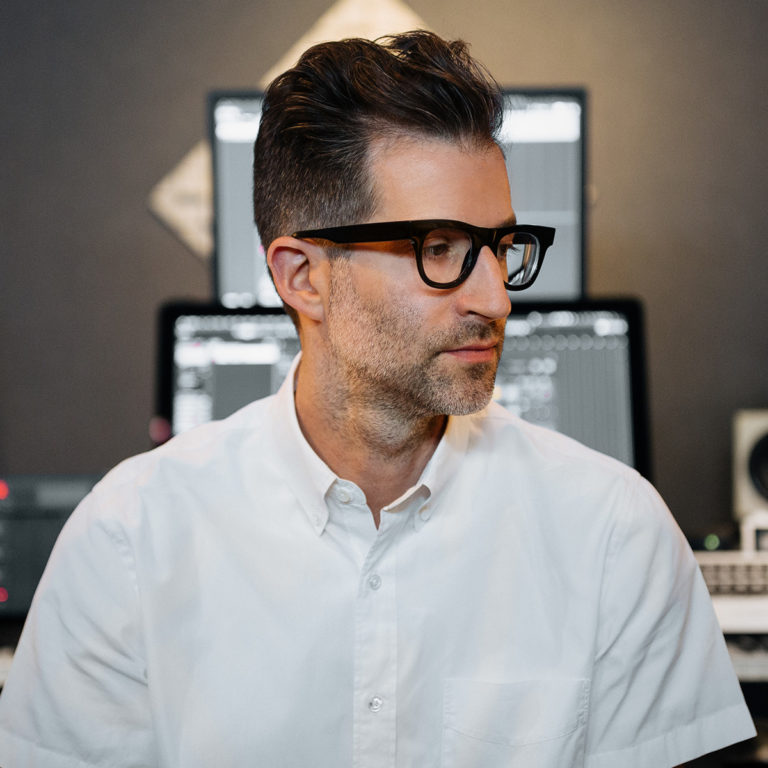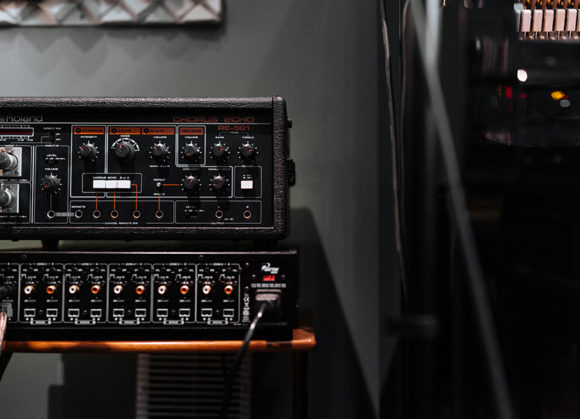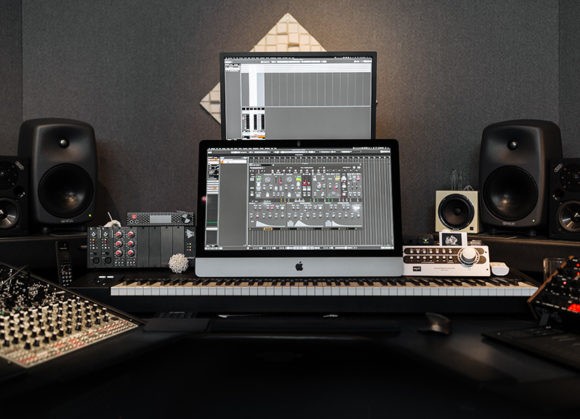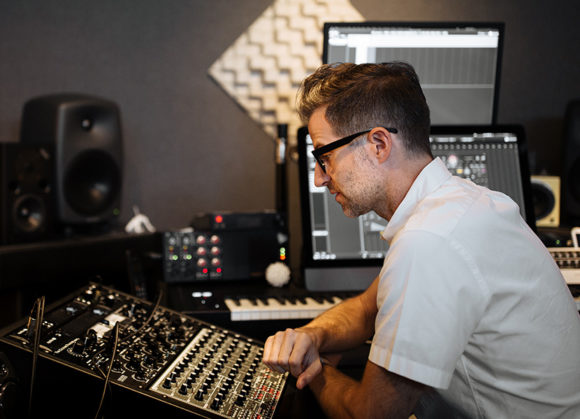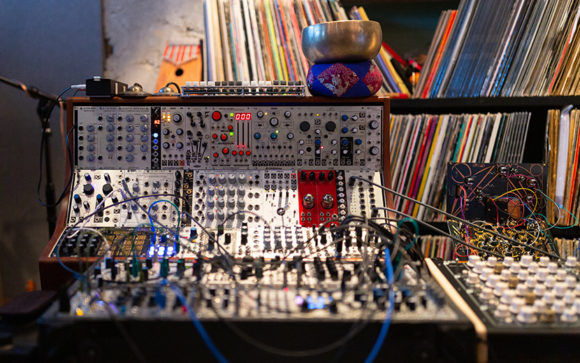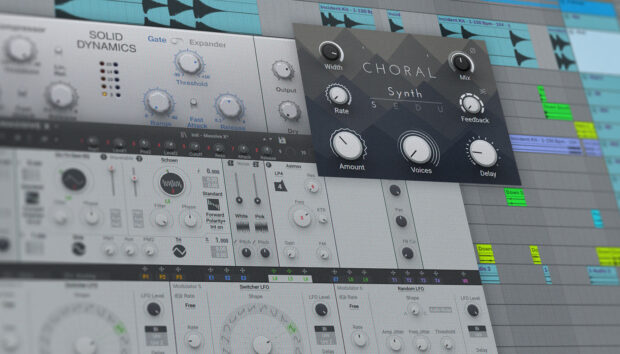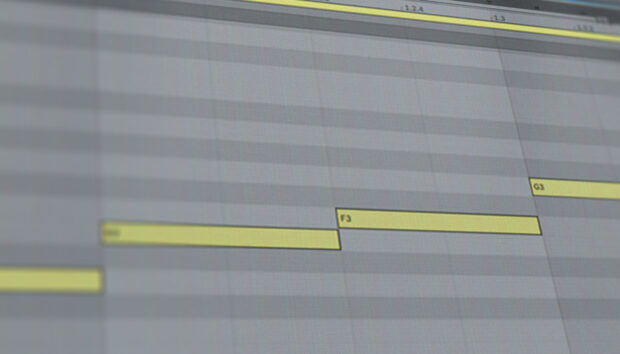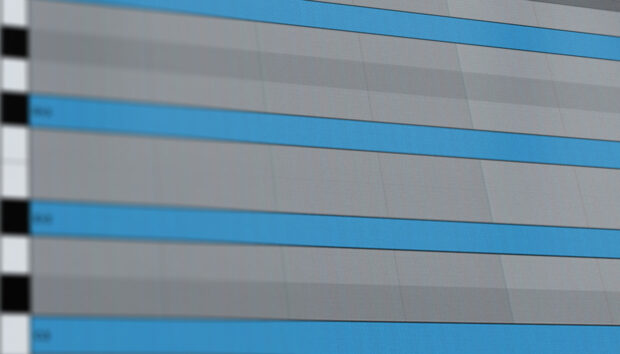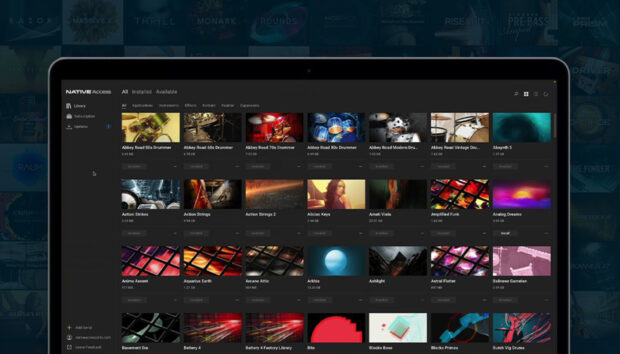Deru, aka Benjamin Wynn, is a prolific TV composer, sound designer, and producer, best known for conjuring warm, organic textures from electronic instruments. Who better, then, to craft a new preset for our flagship synth, MASSIVE X? Ambient Repeats is a grainy, reverb-soaked patch capable of lending cinematic atmosphere to productions of just about any genre – or at least it starts that way. The 9 macros provided make it easy to go from spectral soundscapes to something that more closely resembles a disintegrating rave stab.
Read our interview below to learn about the process and thinking behind Ambient Repeats. Then, to get your hands on the preset and be in with a chance of winning a collection of Native gear, head over to the competition page on Metapop. The challenge?
Create a track with Deru’s patch, and impress our judges – simple. Missing MASSIVE X? Download the free demo here.

What was your first experience with MASSIVE X?
I got the chance to play with it when it was in the alpha stage, and at that point there was no manual, so I just started diving in and trying to figure it out. I quickly discovered that it’s a very deep synth. Each module has a number of different modes that make even simple-looking modules deeper than they appear. I also noticed that there were a number of ideas that are things I’d mostly only seen in the modular world. My early reactions were that I could spend a long time just trying out all of the different combinations of things you can do with it, and the deep nature means that it’s possible to coax a huge range of sounds out of it.
How did you find going from MASSIVE to MASSIVE X? It’s a completely new instrument.
It does seem like a full rewrite, but with the ethos of the original. Some things are familiar, like the modulation assignments, but like any instrument you have to take the time to learn it. The best instruments tend to have personalities, and those generally take time to get to know and understand.
How did you approach making this patch?
I started with wanting to explore polyphonic looping envelopes with randomizations per-note. You can make nice textures this way as each note will have its own characteristics. I wanted to make a cascading texture that could morph from ambient to something with a lot of aggression, so this patch can go from soft to a wall of distortion.
Did you have an idea or concept before starting?
One of the first things I noticed about the envelopes in Massive X is that they can loop, which not all synths can do. When you have poly-looping envelopes, in addition to polyphonic modulators, then you can get sounds that change with each note.
I also noticed that you can set any audio source in the synth to modulate the oscillators using the aux input, so in this patch, I’ve used one of the noise oscillators.
I also utilized the macros. The fact that you can set one knob to do multiple things is powerful. So, for instance, when you turn up the “Dist” macro or the mod wheel, there are lots of parameters changing.
And finally the effects play a large role in turning the patch from ambient to aggressive. The chain is delay into reverb into distortion. As I said, the reverb has a lot of different algorithms, and some of them can make huge washes.
How do presets influence your music process?
Making my own presets for synths is important. Whenever I get a synth, I start saving my own presets so that for any given synth that I have a bank of my own. That’s really valuable, because when I’m working, I often think about those presets. Especially in TV and film, when you have to work quickly, having a bank of presets is really valuable. If I’ve burned through a lot of my own presets, then I start to feel kind-of weird and twitchy – like I need to spend some time exploring again to find some new sounds.
That’s your approach to your personal library of presets. How important are the existing presets?
I find those mostly valuable in terms of quickly gaining an understanding of the range of the instrument. In Massive X, I’ve already bookmarked some presets that I want to go back to to figure out how they were made. So presets are an interesting way to explore the range of the synth, but I don’t end up using them directly very much. At least for the kind of music that I make, designing sounds is integral to the end product. The way people program and think about sounds often becomes their signature.
The original MASSIVE is often thought of as a bass synthesizer. How did you find the process of creating beautiful, ambient sounds on its successor?
It’s very easy. I think Massive got its reputation because lots of the wavetables were full-spectrum and aggressive sounding, and there weren’t a lot of synths capable of those types of sounds at the time. Massive has always come with a huge library of wavetables though, and they range from simple to complex, so you’ve always been able to use it for ‘beautiful’ sounds if you steered the instrument that way. Just like the original, Massive X has the ability to be aggressive but that doesn’t mean that it has to be. It’s all in how you use it.
Terms and conditions
The aforementioned competition is being conducted by Sounds Unlimited, Inc. (“Metapop”). By entering the competition, participants agree to these terms and conditions and Metapop’s Terms of Service ( https://metapop.com/pages/terms).
All personal information is protected by privacy and data protection laws and will not be shared with third parties.
Participants must be 13 years of age or older. Employees of the Native Instruments group are not eligible for prizes.
By uploading a track to the competition page on Metapop, participants can win Native Instruments prizes as the “Grand Prize”.
To be eligible to win, your submissions must be over two minutes and use the provided preset. Wavetables may not be changed, but modulation and other parameters are free to use as you wish. Entries are to be submitted as an MP3 or WAV file at Metapop. Content that uses material to which you don’t own rights (including rights granted to collection societies) will be discredited.
Winners will be determined by a panel of judges based on creative and technical merits.
Winners will be notified by email, and are required to notify Metapop that they accept the prize within one week after receiving the notification email. Otherwise they forfeit the prize and Metapop reserves the right to choose another winner. The winners have to be prepared to show project files to prove original sounds were used.
A cash payout of the prize is ruled out.
The right of appeal is excluded.








